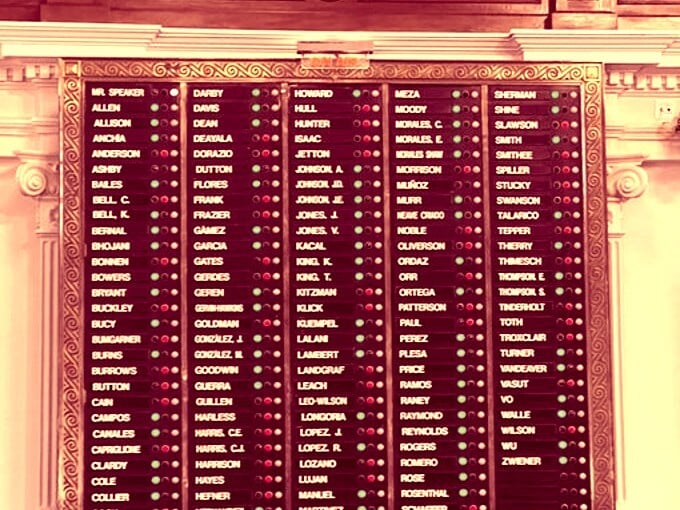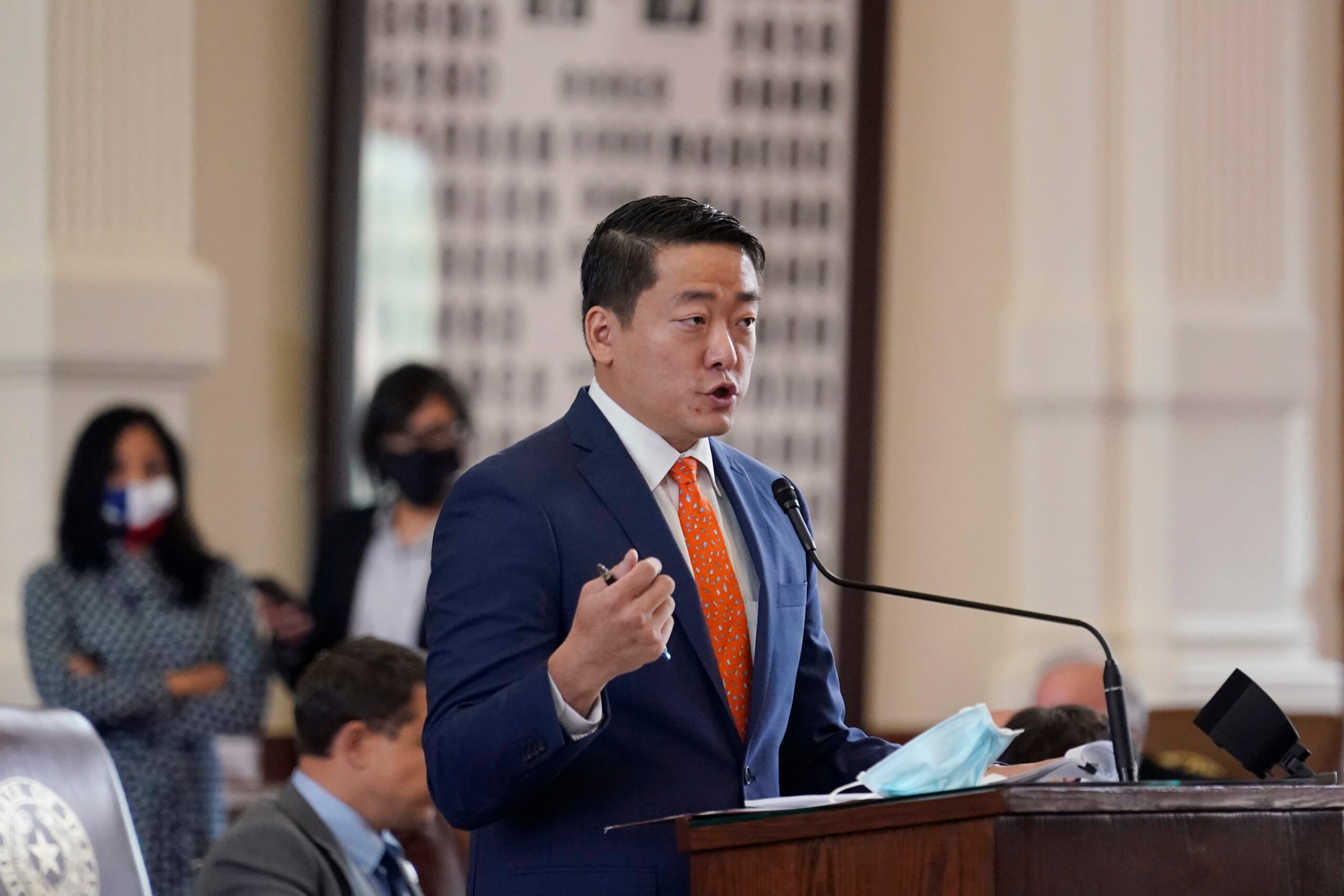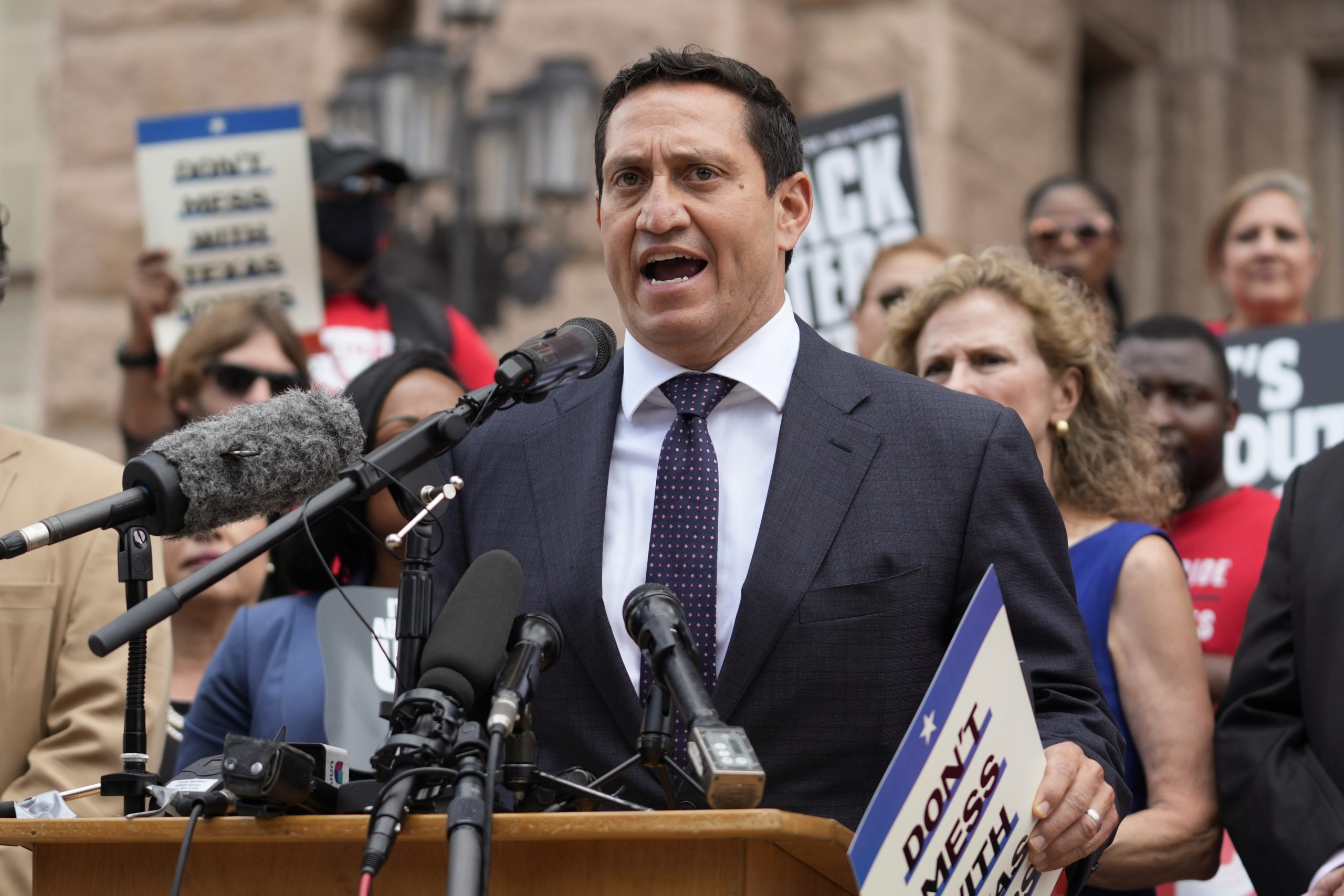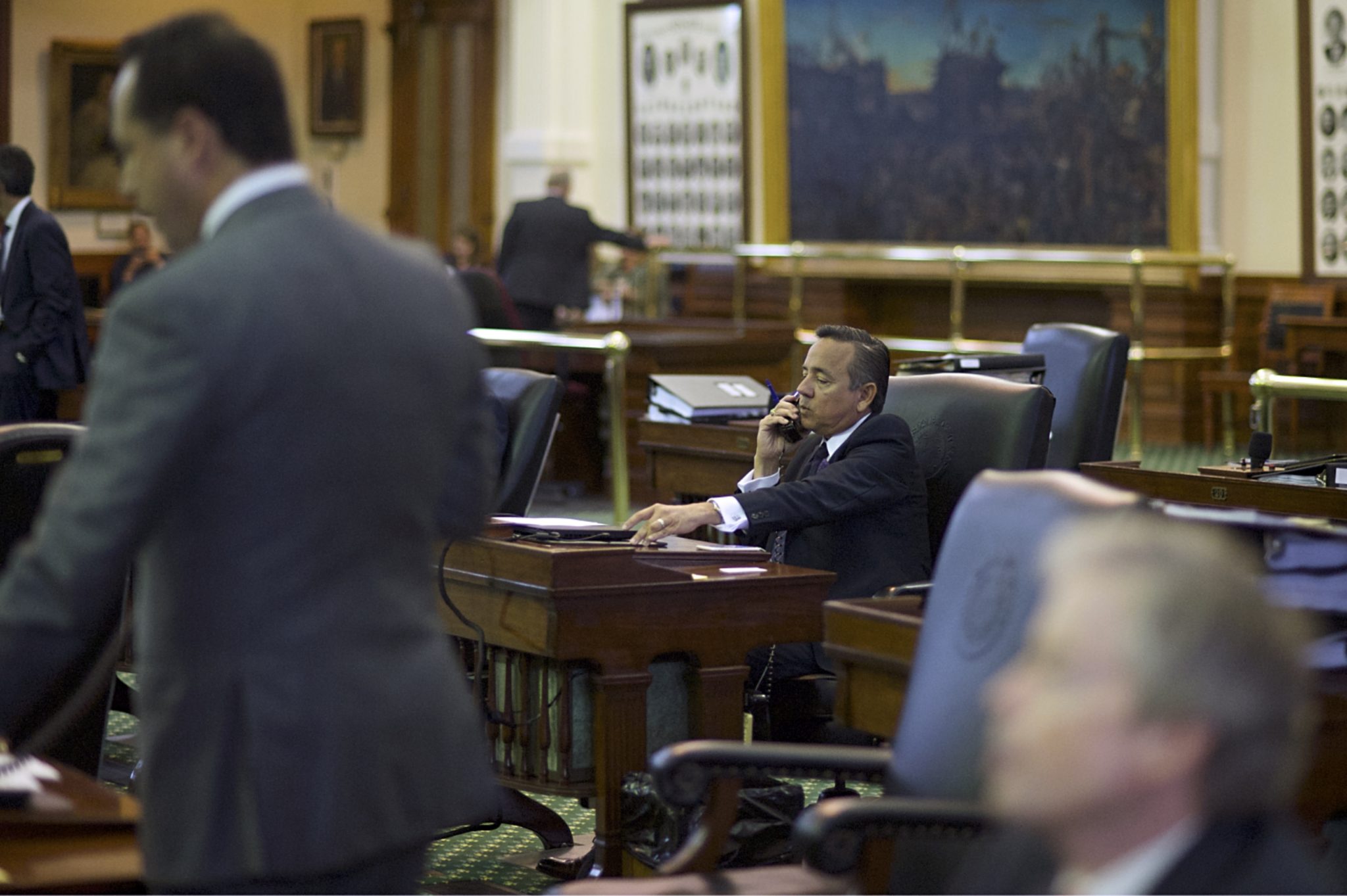
Why Did Texas Democrats Support a Measure that would Erase Billions from State Budget?
Senators Hinojosa, Lucio, Uresti and West don’t jump at the opportunity to explain why they voted for SB 17.

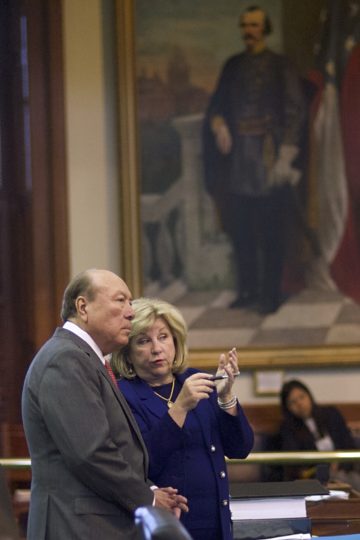
State Senator Jane Nelson, a Flower Mound Republican who chairs the powerful Finance Committee, is prepared to take Texas over a fiscal cliff with a proposal that could eventually abolish one of the state’s main sources of revenue.
A handful of Senate Democrats are right there with her, ready to jump. And they’re fairly reluctant to say why.
In March, four Democratic senators — Juan Hinojosa of McAllen, Eddie Lucio Jr. of Brownsville, Carlos Uresti of San Antonio and Royce West of Dallas — threw their support behind Nelson’s Senate Bill 17. Despite potentially blowing a multi-billion dollar hole in the state budget within a few years, the legislation was only discussed for 20 minutes in Nelson’s committee. On the Senate floor, there was no debate, and the bill passed on a 23-7 vote.
Under Nelson’s bill, the state’s main business tax would be slashed when the Texas economy performs relatively well. (For you wonks, the specific formula is that the state would set aside for franchise tax cuts half of all general revenue-related funds that exceed 5 percent growth over the previous biennium.) For years, many legislators have been itching to do away with the unpopular franchise tax, one of the state’s largest sources of revenue. But there isn’t the political will to do it all at once. Instead, SB 17 kills the tax incrementally and punts the fiscal pain to future legislatures. As Senator Van Taylor, R-Plano, put it in a Senate Finance Committee hearing, Nelson’s bill puts the franchise tax on a “glide path to death.”
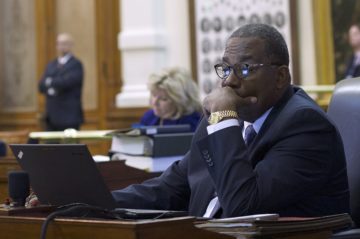
But the state budget is already under tremendous strain from rounds of tax cuts, funding “diversions” and budgeting gimmicks. Democrats routinely complain about how there’s never enough money for schools, universities, health and human services, child welfare, roads and many other needs. When population growth and inflation are taken into account, the House budget, which cleared the chamber on Thursday, is 7 percent less than the what’s needed to keep pace with the current level of services. SB 17 would make it even more difficult to cobble together a state budget that doesn’t require deep and potentially permanent underfunding of core government functions.
“It would be a historically damaging thing to do,” Lavine told the Observer. “They clearly can’t afford to cut taxes. They can barely write an effective budget for ’18-’19 without doing permanent damage.”
In the fiscal note attached to the bill, the comptroller estimates that the measure would cost the state $1 billion per biennium beginning in 2020. If the franchise tax is completely eliminated, budget-writers will have nearly $8 billion less to work with, according to Dick Lavine, a budget expert with the Center for Public Policy Priorities.
Despite repeated requests, West and Hinojosa refused to comment. Hinojosa’s office said he will be too busy to talk about SB 17 until at least early June. After voting for the measure, Hinojosa told the San Antonio Express-News that he has thought that the franchise tax was “very unfair” ever since the Legislature overhauled it in 2006 as a way of funding public schools while lowering property taxes.
Lucio and Uresti defended their votes for SB 17. Like Nelson, they said that the bill will help the business community, in turn spurring economic growth that will offset potential revenue losses. Nelson has claimed that SB 17 will actually raise more money for the state. “If you get rid of this tax there will be more jobs,” she said. “It will put more money in our coffers for education.” Lucio and Uresti didn’t sell it quite so hard.
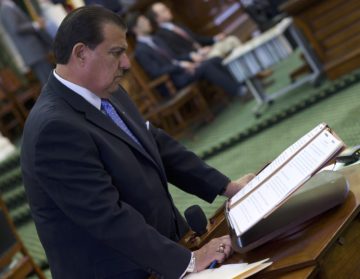
“It brought a little relief to small businesses in Texas,” Lucio told the Observer. “I’m careful, but I don’t make it a mystery that I support business.”
Lucio pointed out that he voted for tax cuts under former governors George Bush and Rick Perry.
Uresti said the hefty fiscal note attached to the bill was cause for some concern.
“It was a delicate balance, I know, but one that I felt I needed to support,” he said in a phone interview a week after the Observer reached out to his office. “A billion dollars is significant. It means a lot whether it’s for teacher retirement or [Child Protective Services] worker raises — the list goes on and on. It’s a lot of money, but at the same time it’s a lot of money to the businesses that are paying it, as well.”
In 2015, the Legislature cut the franchise tax by 25 percent in another Nelson-led measure. That left lawmakers with about $2.5 billion less for the 2018-2019 biennium, Lavine said. Cuts to the tax in 2013 drained another $1.1 billion out of the state’s available revenue stream during the last four years.
“It’s consistent with an ideological commitment to shrinking government for the sake of shrinking government,” Lavine said.
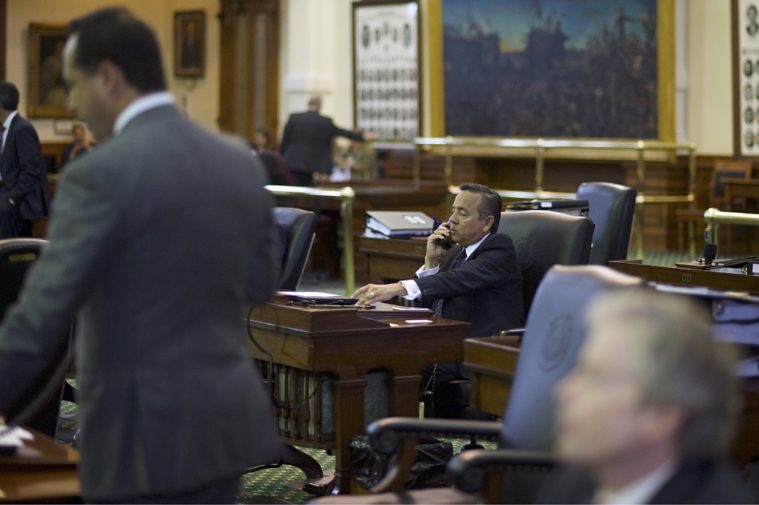
SB 17 could’ve passed without Democratic support. However, Democrats missed an opportunity to point out how the increasingly austere state budget is largely due to decisions made by lawmakers with full knowledge of the consequences, Lavine said. “The main thing is somebody at least stand up on the Senate floor and say, ‘You know this is going to take a billion more out of the next budget,” he said. “Nobody said anything.”
In his State of the State Address, Governor Greg Abbott implored lawmakers to keep cutting the franchise tax “until it fits in a coffin.” In the House, state Representative Dennis Bonnen, R-Angleton, is carrying House Bill 28, which is similar SB 17. One big difference: Bonnen’s bill faces bipartisan opposition.
At a committee hearing, state Representative Drew Darby, a San Angelo Republican, opposed the measure. Without the franchise tax, he said, the state would be forced to rely too heavily on its volatile sales tax to provide services for its growing population.
“I’m not a fan of the margins tax, but I hope to God I’m a realist in trying to figure out what it takes to fund the needs of this state,” he said.
